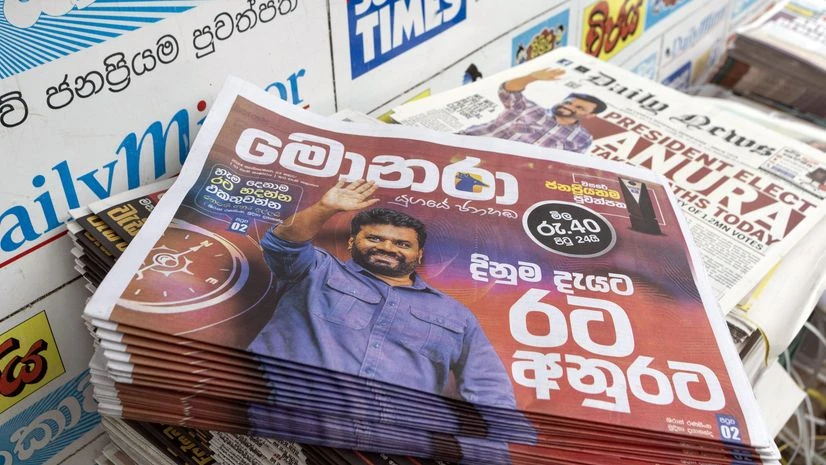Sri Lanka has elected Anura Kumara Dissanayake as its new president, marking a significant shift in the nation’s political landscape. Dissanayake, a nationalist outsider, won against established centrists, showcasing the strength of Sri Lanka’s democracy. His victory comes two years after significant protests led to the resignation of the previous leadership. However, Dissanayake’s rise raises concerns for India, which is wary due to his party’s past anti-India actions. This political change reflects broader trends in South Asia, where neighboring countries are experiencing their own shifts. India’s foreign policy focus on security over democracy may hinder relationships with these nations, highlighting the need for a more balanced approach that respects neighboring aspirations for a stable and cooperative region.
Sri Lanka has welcomed a new president, Anura Kumara Dissanayake, a nationalist outsider whose election represents a significant moment in the island nation’s democratic journey. His victory comes just two years after mass protests led to the resignation of the previous president and prime minister. Dissanayake stood out against two prominent political figures, signaling a shift in the political landscape.
For India, a major player in the region, Dissanayake’s leadership raises concerns. His party, the Janatha Vimukthi Peramuna, has a history of anti-India sentiments, dating back to its founding in the 1980s. Although Dissanayake has made attempts to improve relations, including a recent visit to India, many officials view him as a troubling replacement for Ranil Wickremesinghe, who favored closer ties with India and was wary of China’s influence.
The political climate in South Asia has been changing rapidly. Recently, Bangladesh’s longtime leader Sheikh Hasina was overthrown, and K.P. Sharma Oli, who has been linked to Beijing, returned to power in Nepal. These shifts reflect a broader trend of changing relationships and power dynamics in the region.
Under the present circumstances, India’s diplomatic standing in the region appears precarious. Historically, New Delhi has focused on security-centric foreign policies, sidelining important democratic values that resonate with neighboring countries. This has led to sentiments of disenchantment among these nations, questioning India’s commitment to supporting democratic principles.
As India’s influence in South Asia seems to wane, it’s crucial for policymakers to reassess strategies that could foster economic integration and mutual respect, rather than relying solely on security measures. Emphasizing soft power through cultural and economic partnerships can offer a path forward, allowing India to regain its footing in the region.
In conclusion, Dissanayake’s presidency is a wake-up call for India to reconsider its approach in South Asia, moving towards engagement that prioritizes both economic development and democratic ideals.
Tags: Sri Lanka, Anura Kumara Dissanayake, India, South Asia politics, democracy, Janatha Vimukthi Peramuna.
-
Why is the Sri Lanka election important for India?
The Sri Lanka election shows how India’s influence in the region is changing. It reflects concerns about India losing its traditional role in its neighboring countries. -
What are the main issues in Sri Lanka’s election?
Key issues include the economy, rising costs of living, and political stability. Voters are looking for leaders who can address these challenges effectively. -
How does Sri Lanka’s election affect India-Sri Lanka relations?
The outcome can impact trade, security, and diplomatic ties between India and Sri Lanka. A new government may choose to strengthen or distance itself from India. -
Why is India worried about losing influence in Sri Lanka?
India is concerned because losing influence could lead to increased involvement from countries like China, which may affect regional security and economic interests. - What can India do to maintain its influence in Sri Lanka?
India can strengthen partnerships through trade, investment, and cultural exchanges. Building good relations with the new government is also crucial for maintaining influence.
)






